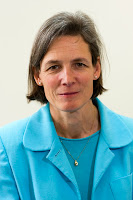 Because the fitness to practise is such an important part of the work we do to protect the public, it is an area we are constantly trying to increase our understanding of and a process we are always reviewing.
Because the fitness to practise is such an important part of the work we do to protect the public, it is an area we are constantly trying to increase our understanding of and a process we are always reviewing.Research
One important way we do this is through research. Today, we have released the data from our latest study, which shows that a fifth of UK adults have encountered behaviour from a health or care professional that made them doubt their fitness to practise.
The research also found:
- More than a quarter said the health or care professional in question seriously or persistently failed to meet standards.
- 16 per cent said they felt the professional failed to respect the rights of a patient to make their own choices.
- 13 per cent felt they were ‘hiding mistakes’.
- 9 per cent felt they were exploiting vulnerable patients.
- One in twenty said they had experienced or witnessed reckless or deliberately harmful acts.
Despite these figures, just three out of ten reported their concerns and a further 73 per cent said they would not know where to go to report concerning behaviour.
This data supports our research published earlier this year exploring public perceptions of the concept of public protection and how this might inform the fitness to practise of health and care professionals. That research showed that the public was most concerned about dishonesty, both on and off duty, and had an expectation that, at a minimum, professionals would be competent and qualified. Importantly, the public also thought that judgements should always consider the context of a situation and be made on a case-by-case basis.
The findings of both research reports are reassuring because we are dealing with the areas the public feel they need protecting from the most – skills and behaviour – and support the case-by-case approach we already take fitness to practise. See our latest annual report and key information for a look at what we have been doing over the past year to protect the public.
Improving the FTP process
In addition to making interesting reading for professionals and regulators alike, the findings of the research are helping us in a broader piece of work to improve the FTP process for all concerned, for example reviewing the information we provide about the process.
Earlier this year, we held an event with representatives from stakeholder organisations, including professional bodies, to discuss the research on public protection and explore how we can continue to do this. Some key themes emerged from the discussions. These included:
- More and clearer information for employers and registrants explaining the difference between the FTP and other disciplinary or criminal proceedings.
- Case studies indicative of FTP cases that could be used as learning and discussion points.
- Clearer information for service users about what an FTP case looks like to help manage expectations on what we can and cannot deal with, as well as support and clear signposting for service users when they have a concern that is not a FTP issue.
- Better integrated and more interactive information, including cross-referencing exiting documents and more video and multimedia content.
We will be looking at both the research and the feedback we have received so far as we continue our review of the FTP experience.
Brian James
Brian James
Head of Assurance and Development, Fitness to Practise
Notes:
- Today's research release
- Understanding public protection research, 2013











